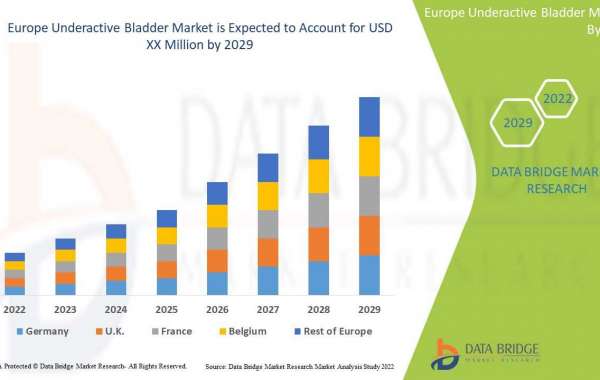In today’s digital landscape, data has become a pivotal force in shaping the future of marketing. Businesses are increasingly relying on Martech tools to gather, analyze, and transform data into actionable insights that drive successful marketing strategies. This shift has not only allowed marketers to make more informed decisions but has also enhanced the efficiency and effectiveness of their campaigns.
In this tech article, we will explore how data transforms marketing strategies, from providing deep customer insights to enabling real-time decision-making. By turning data into actionable steps, marketers can optimize their campaigns, better engage their target audience, and achieve a higher return on investment (ROI).
The Role of Data in Modern Marketing
Data plays an indispensable role in the modern marketing ecosystem. It allows marketers to understand consumer behavior, track performance metrics, and adjust strategies based on real-time insights. Whether through website analytics, social media data, or customer feedback, the integration of data into marketing helps businesses make more informed decisions.
- Customer Insights At the core of any successful marketing strategy lies a deep understanding of the customer. Data provides invaluable insights into customer preferences, needs, and behaviors. By analyzing these insights, businesses can create more personalized marketing campaigns that resonate with their audience. Martech platforms like HubSpot and Salesforce have made it easier for marketers to segment their audience based on demographics, purchase history, and online interactions.
- Improved Targeting One of the most significant advantages of using data in marketing is the ability to improve targeting. With data-driven insights, marketers can segment their audience more accurately, ensuring that each segment receives tailored content and offers. This precision targeting increases the chances of conversion, as potential customers are more likely to engage with content that speaks directly to their needs. Tools such as Google Analytics and Facebook Insights allow businesses to track the performance of their ads and refine their targeting over time.
- Optimized Campaign Performance Data helps marketers track the success of their campaigns by providing key performance indicators (KPIs) such as click-through rates (CTR), conversion rates, and engagement levels. By continually monitoring these metrics, marketers can make real-time adjustments to improve campaign outcomes. For example, if a particular ad is underperforming, data analytics tools can highlight where improvements are needed, such as modifying the messaging or adjusting the target audience.
- Real-Time Decision Making With the growing availability of real-time data, marketers no longer have to wait until the end of a campaign to evaluate its success. They can monitor key metrics as the campaign progresses and make immediate changes if necessary. Real-time data enables faster decision-making, allowing businesses to stay agile in a rapidly changing market. This also helps in managing marketing budgets more effectively by reallocating resources toward more successful tactics and strategies.
Transforming Marketing Strategies with Data-Driven Action
Turning insights into action is where the true power of data comes to life. The following are some key ways data-driven marketing strategies can be effectively implemented:
- Personalization Personalization has become a cornerstone of modern marketing. Consumers expect tailored experiences that meet their individual preferences. Data enables businesses to deliver personalized messages, offers, and recommendations to customers based on their past interactions and behaviors. Martech platforms such as Adobe Experience Cloud and Marketo provide the tools needed to implement personalized marketing at scale. From personalized emails to targeted social media ads, data allows brands to connect with their audience on a deeper level, leading to higher engagement and conversion rates.
- A/B Testing and Optimization Data empowers marketers to continually test and optimize their campaigns through A/B testing. By comparing two different versions of a marketing asset, such as a landing page or email, businesses can determine which version performs better. Data from these tests helps marketers refine their strategies, ensuring that only the most effective content reaches their audience. A/B testing can also be applied to elements such as headlines, images, and calls to action, giving marketers the flexibility to tweak campaigns for maximum impact.
- Predictive Analytics Predictive analytics is a game-changer in marketing. By analyzing historical data, predictive analytics tools can forecast future trends, allowing marketers to anticipate customer behavior and make proactive decisions. For example, by predicting which customers are likely to churn, businesses can implement targeted retention strategies to keep them engaged. Predictive analytics also helps in identifying which products or services are likely to be popular in the future, guiding product development and marketing efforts.
- Cross-Channel Marketing With data, businesses can track customer interactions across multiple touchpoints, from social media to email to in-store visits. This creates a unified view of the customer journey, enabling businesses to deliver consistent, relevant messaging across all channels. Data-driven cross-channel marketing ensures that customers receive a seamless experience, regardless of where or how they engage with the brand. Tools like Google Marketing Platform and Sprout Social help businesses manage and optimize their cross-channel marketing strategies.
Challenges in Data-Driven Marketing
While data offers tremendous potential, there are challenges that marketers must address to fully realize its benefits. One common challenge is the sheer volume of data available. With so much data to analyze, marketers may struggle to focus on the most relevant insights. To overcome this, it’s essential to define clear goals and focus on key metrics that align with your marketing objectives.
Another challenge is data privacy. As regulations such as GDPR and CCPA become stricter, businesses must ensure they are collecting and using customer data responsibly. Failure to comply with data privacy regulations can lead to legal consequences and damage to a brand’s reputation.
The Future of Data in Marketing
As technology continues to evolve, the role of data in marketing will only become more important. The integration of artificial intelligence (AI) and machine learning into Martech platforms will further enhance the ability of businesses to gather and analyze data. AI-driven tools will allow marketers to automate more tasks, predict customer behavior with greater accuracy, and optimize campaigns in real-time.
Moreover, as the demand for personalized experiences grows, data will be the driving force behind hyper-targeted, one-to-one marketing strategies. Brands that can harness the power of data to deliver truly personalized experiences will stand out in an increasingly competitive market.
Conclusion
In conclusion, data is transforming how businesses develop and execute marketing strategies. From providing customer insights to enabling real-time adjustments, data empowers marketers to create more effective and impactful campaigns. Martech solutions have made it easier than ever to turn raw data into actionable insights, helping businesses stay agile and competitive in a dynamic marketplace.
This tech article has explored the profound impact of data on marketing strategies. By embracing data-driven decision-making, businesses can not only improve their marketing efforts but also create more meaningful connections with their customers, ultimately driving growth and success.









